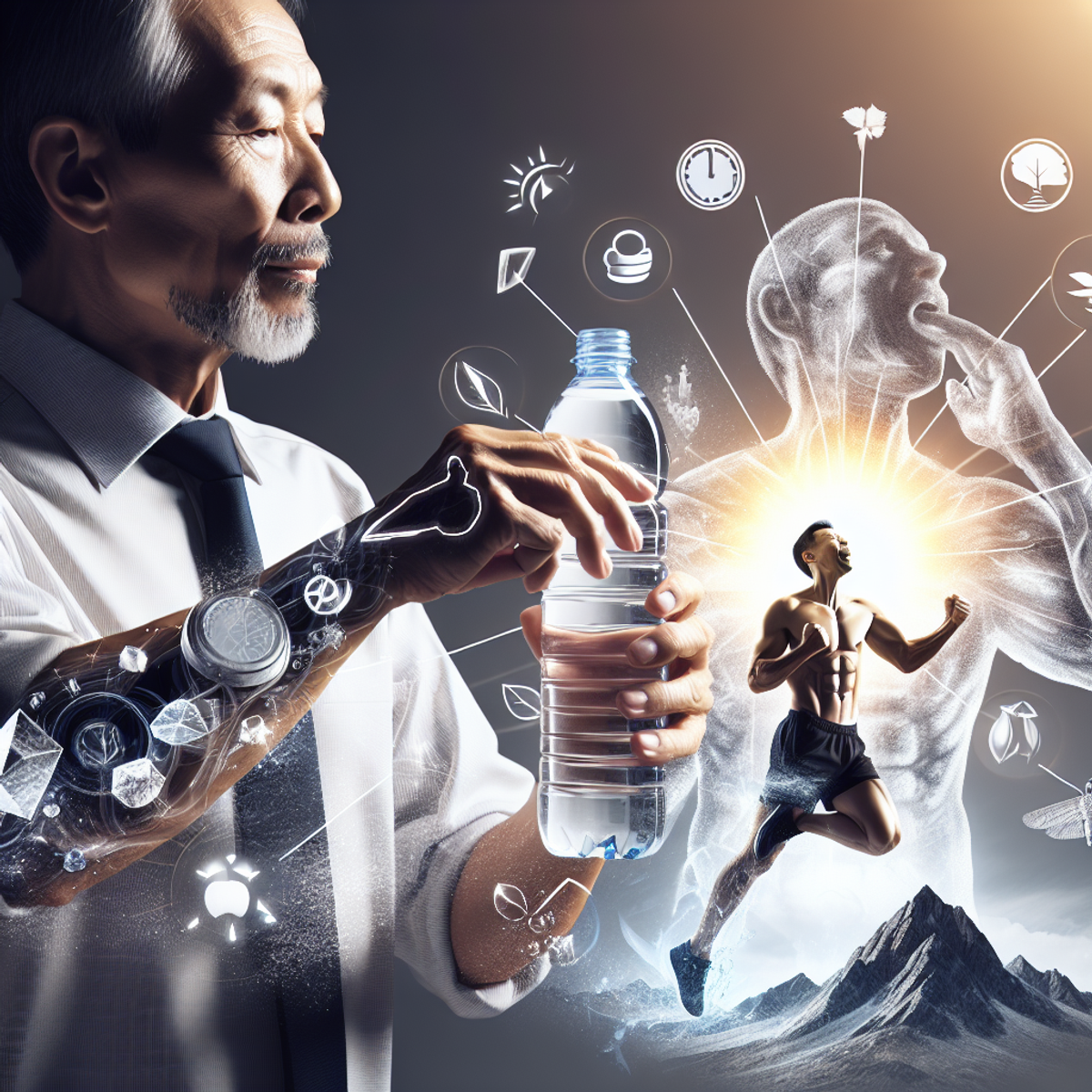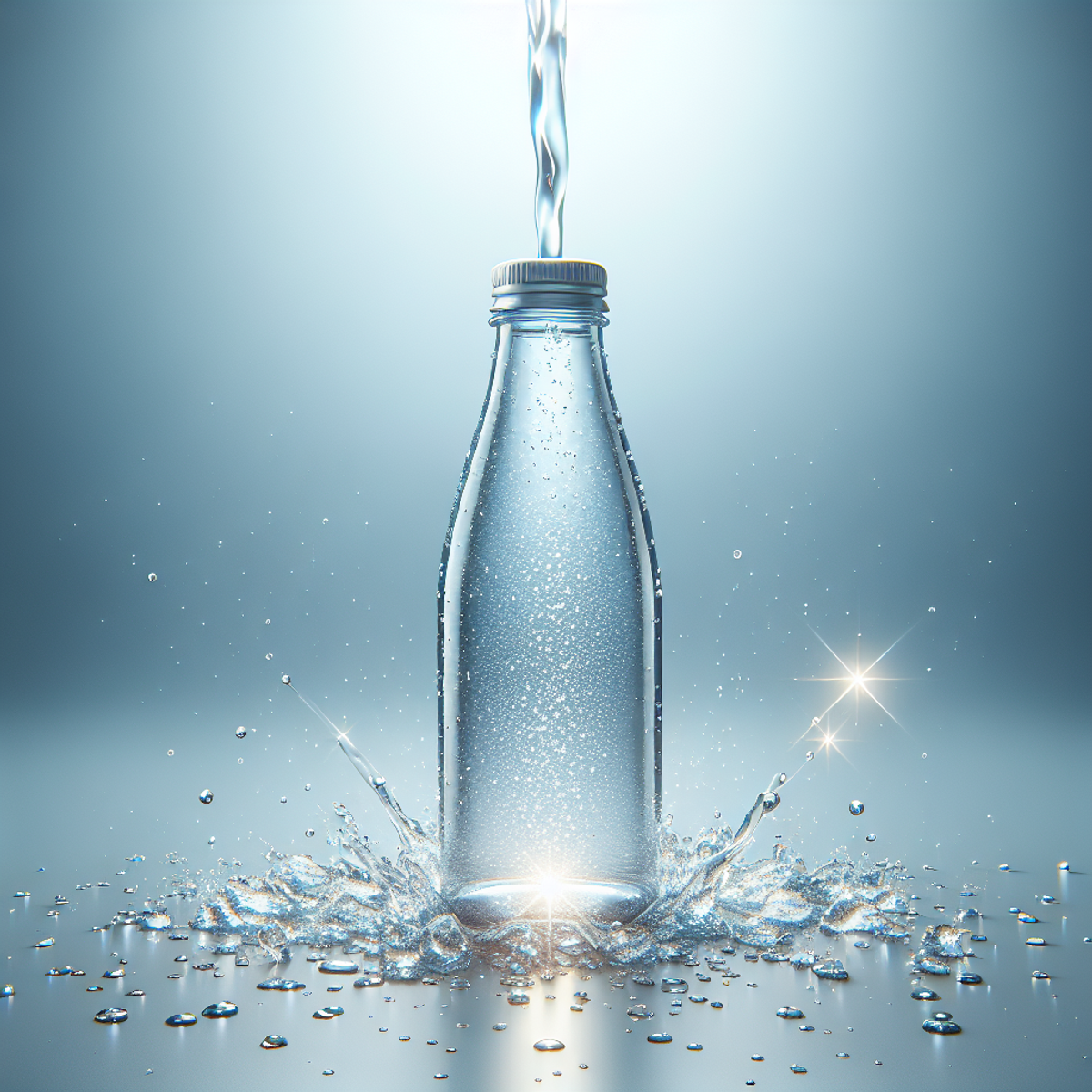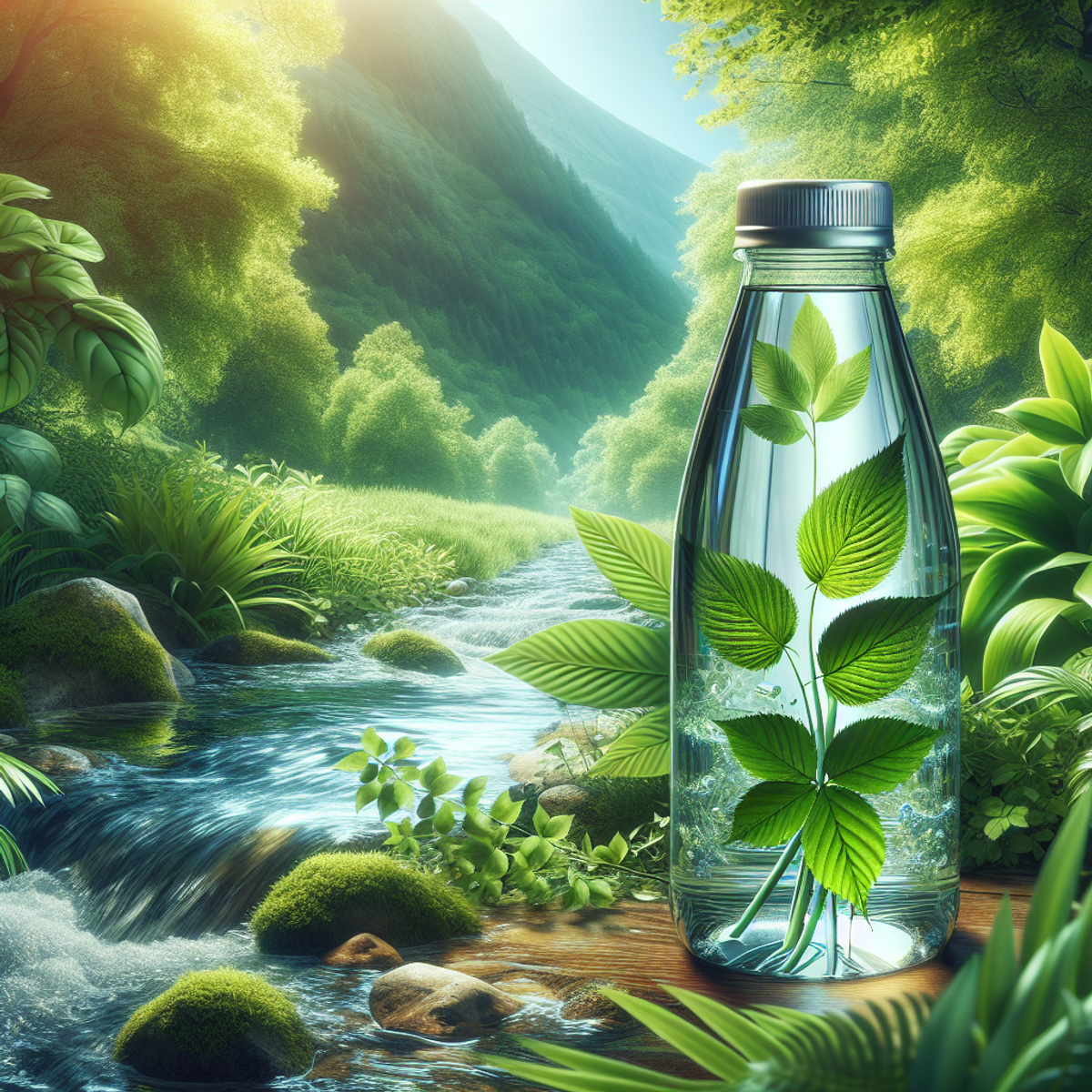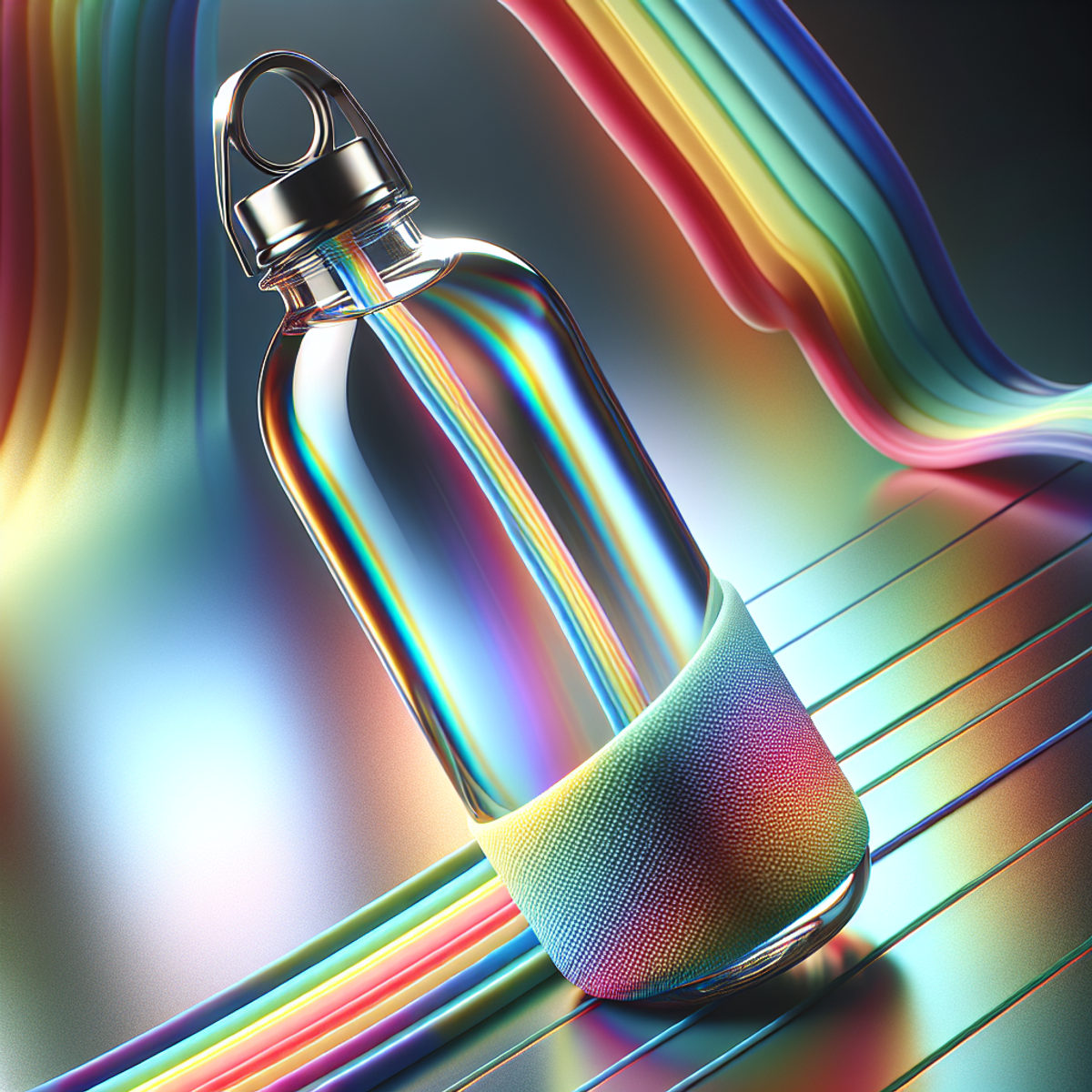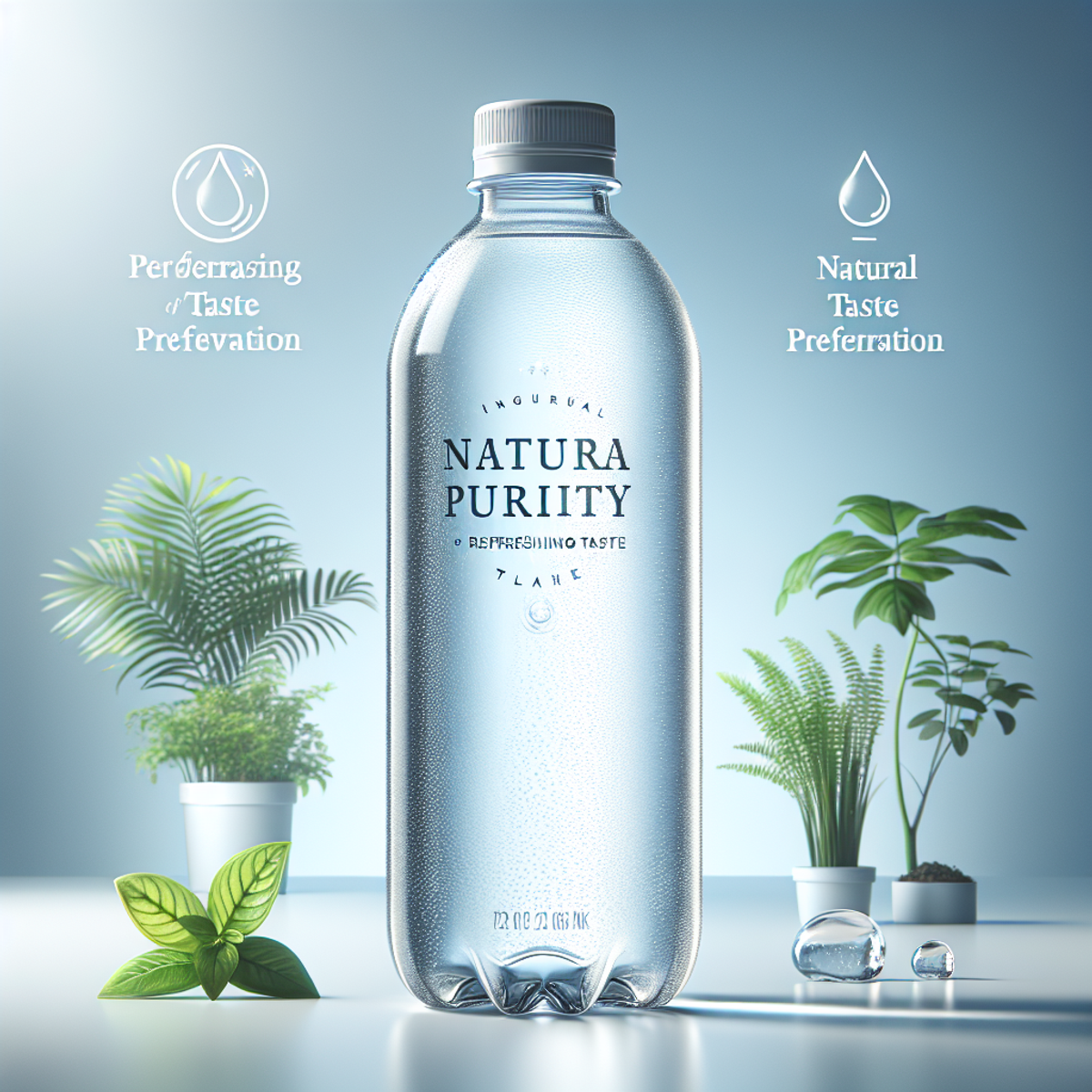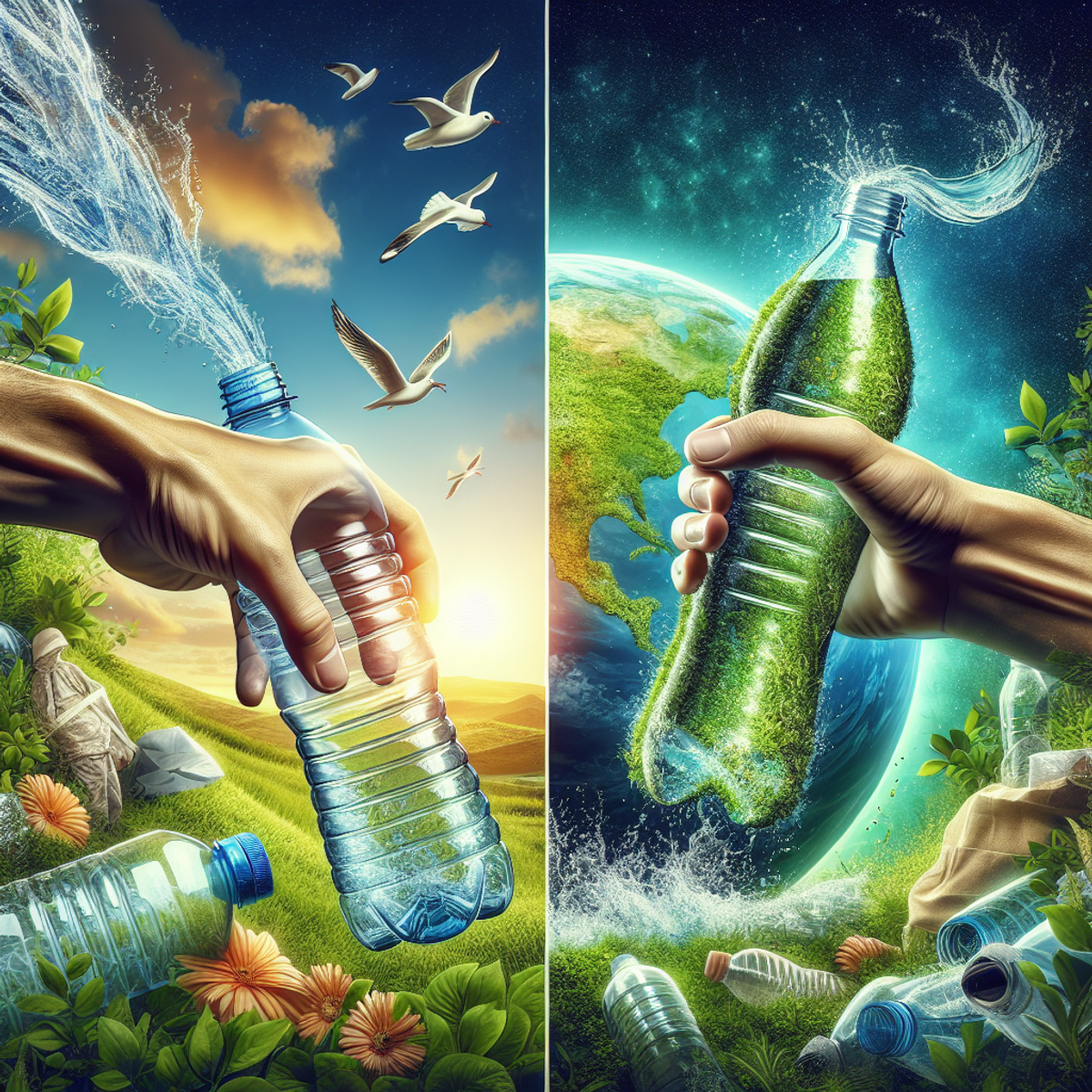Introduction
Hey there! Ever noticed how a parched throat can disrupt your focus? Turns out, the connection between hydration and productivity is more than just a feeling. Being well-hydrated is like oiling the gears of your brain and body – it keeps everything running smoothly for peak performance.
Now, imagine having a trusty sidekick that ensures you’re sipping enough water throughout the day. That’s where a good bottle comes into play. It’s not just about quenching thirst; it’s about maintaining hydration levels that are critical for staying sharp and efficient.
Keep a quality water bottle handy, and you’re setting yourself up for success. Want to find the perfect one? Check out some top picks for healthy, chemical-free hydration options that I’ve curated just for you.
Remember, to keep productivity on point, keep hydration in sight!
Understanding the Impact of Hydration on Productivity
Hydration may seem like a basic health tip, but its influence on productivity could be the edge you need in a competitive work environment. Water isn’t just for quenching thirst; it’s a critical fuel for your body’s daily functions, including those that govern how you perform both physically and mentally.
Why Hydration is Essential for Productivity
1. Physical Performance
Water plays a central role in maintaining body temperature, lubricating joints, and delivering energy to muscles during physical activities. Without adequate hydration, the body can’t perform at its best. When you’re dehydrated, even slightly, physical tasks can become more challenging and exhausting. This isn’t limited to athletes or labor-intensive jobs; even walking to meetings or commuting can feel more strenuous.
2. Brain Function
Your brain is around 75% water, so hydration directly affects cognitive abilities. Proper hydration helps with maintaining attention, memory function, and emotional regulation. If you’re not sipping enough H2O, you might find it harder to focus on tasks, remember important details, or make quick decisions.
The Link Between Dehydration and Impaired Physical Performance
Picture this: A mere 1-2% loss of body water significantly impacts endurance and strength. The effects are heightened as dehydration worsens:
- Muscles fatigue faster
- Heat exhaustion becomes a risk
- Recovery from activity slows down
How Hydration Affects Brain Function and Cognitive Abilities
It’s all about balance. With just enough water, your brain cells function optimally. Fall short on fluid intake, and you might experience:
- Headaches that distract from work
- Fatigue that cuts your day short
- Difficulty concentrating on tasks at hand
By keeping hydrated, you’re essentially greasing the gears of your mind—keeping thoughts clear and processes smooth.
In short, think of water as the oil in the engine of productivity. Without it, things start to overheat and break down. With it? You’re cruising along at peak performance.
Exploring the Scientific Studies on Hydration and Work Performance
Scientific studies have shown that staying hydrated is not just important for our health, but also plays a crucial role in how well we perform at work. Research conducted in various work environments has highlighted the significance of hydration in keeping our mental abilities sharp.
1. Hydration’s Influence on Cognitive Functioning
A study published in the Journal of Nutrition found that even mild dehydration can lead to attention deficits and a higher frequency of errors during cognitive tasks. Since the brain is made up of about 75% water, it’s no wonder that hydration directly affects its function.
2. Effects on Mental Tasks
Research carried out by the Human Performance Laboratory at the University of Connecticut revealed that mild dehydration can impair critical thinking, complex problem-solving, and concentration – all of which are crucial skills for productivity in most jobs.
3. Physical Tasks and Hydration
In work settings such as factories or construction sites where physical labor is predominant, maintaining proper hydration becomes even more essential. Dehydration can result in decreased strength, stamina, and coordination, leading to lower worker productivity and an increased risk of workplace accidents.
These studies clearly emphasize the importance of maintaining adequate hydration levels not only for our overall well-being but also for optimal performance both mentally and physically at work. They provide scientific evidence for what many productivity coaches and health advisors have been emphasizing: drinking enough water directly impacts how well we perform.
The connection between these findings is undeniable – dehydration negatively affects both mental sharpness and physical endurance. Just imagine trying to concentrate on a complex report when your brain is desperately in need of water or operating heavy machinery when your muscles are running on empty.
“Dehydration hampers both mental acuity and physical endurance.”
These are the key takeaways from these studies:
- Cognitive effects: Attention deficits, increased error rates
- Physical impact: Decreased strength, reduced stamina
- Productivity dip: Direct correlation between dehydration and reduced work output
For those who work in air-conditioned offices or engage in strenuous outdoor activities, it’s important to remember the significance of staying hydrated. These findings serve as a reminder to always have a water bottle nearby. Taking regular sips throughout the day could make all the difference in turning an average workday into an exceptional one.
By being mindful of our hydration levels and making a conscious effort to drink enough water throughout the day, we can ensure that we maintain the high level of cognitive functioning and physical performance required to excel at our tasks.
Practical Strategies to Stay Hydrated Throughout the Day
Consistently staying hydrated is crucial for long-term productivity. It’s like keeping your engine well-oiled; you just perform better. So, let’s explore some practical strategies that’ll help you stay hydrated and at the top of your game:
1. Choose a Reusable Water Bottle That Fits Your Lifestyle and Preferences
- Size Matters: Grab a bottle that’s big enough to keep you hydrated but not too bulky to carry around. A 32-ounce bottle? Perfect for desk jobs. Always on the move? A sleek 16-ouncer might be your best bet.
- Material Counts: Stainless steel stays cool, glass bottles are classy and free from chemicals, while BPA-free plastic hits the lightweight mark.
- Convenience is Key: Easy-to-clean models with wide mouths, bottles with built-in filters for tap water drinkers, or those with markings to track intake can be total lifesavers.
2. Set Reminders or Use Apps to Track Your Daily Water Intake Goals
- Tech to the Rescue: Set alarms on your phone or computer. Or better yet, get a smart water bottle that syncs with your phone and buzzes when it’s time to take a sip.
- Apps Galore: Download an app that logs your ounces and sets daily goals. Some even let you compete with friends for an extra splash of motivation.
3. Spice Up Your Hydration Routine with Infused Water or Herbal Teas
- Infusions Add Excitement: Drop some berries, cucumber slices, or mint leaves into your bottle. Not only does it look pretty, but it also gives a subtle flavor boost without the sugar crash.
- Herbal Teas Keep It Interesting: Mix in caffeine-free herbal teas for a warm or chilled beverage that counts towards hydration and soothes the soul.
Implementing these strategies can transform how you drink water—making it more of a self-care ritual than a chore. With the right bottle by your side and these tips in your arsenal, sipping your way through the day could become as habitual as checking your email.
The Role of Environmental Factors, such as Air Conditioning, in Dehydration Risk
Air conditioning has become a staple in homes and workplaces, especially during the hot months. However, it’s important to understand how it can affect your hydration levels. Here’s how air-conditioned environments can quietly lead to increased fluid loss and dehydration:
How Air Conditioning Causes Dehydration
- Dry Air Circulation: Air conditioners work by removing humidity from the air, which creates a cooler environment. This drop in moisture levels can cause your body to lose water through respiratory fluid loss, even without noticeable sweating.
- Unnoticed Dehydration: In cooler conditions, you might not feel thirsty as often. That absence of thirst doesn’t mean your body isn’t losing water; it just means you’re less likely to notice and replenish it.
- Temperature Regulation: Your body is constantly working to maintain a stable internal temperature. When moving between hot outdoor temperatures and a cool air-conditioned room, this regulatory process requires extra water usage, potentially leading to dehydration if fluids aren’t replaced.
Tips for Staying Hydrated in Air-Conditioned Spaces
To stay hydrated in these conditions, here are some simple tips you can follow:
- Keep Water Handy: Make sure you have that trusty water bottle from earlier within reach. Even if you’re not feeling parched, take regular sips to keep those hydration levels up.
- Humidity Helpers: Consider using a humidifier to offset the drying effect of air conditioning. A little extra moisture in the air can help reduce water loss through your skin and breathing.
- Take Regular Breaks: Step outside or into non-air-conditioned spaces periodically. It helps remind your body of its natural thirst cues, prompting you to drink more water.
Dehydration Risks in Winter Too
Remember, dehydration isn’t just a summer concern; air-conditioned offices in the winter can be equally dehydrating. Keep sipping that H2O whether you’re basking in artificial coolness or are cozied up against the chill outside.
Staying mindful of these environmental factors will support your hydration efforts and contribute positively to maintaining productivity.
Conclusion
Keeping a water bottle within reach is not only about quenching thirst but also about increasing productivity. Here’s what you need to remember:
- Hydration is essential for optimal brain function and physical performance.
- Every sip from a good bottle can give you a small boost in productivity.
- Being mindful of your water intake helps you maintain focus and mental clarity.
Choosing the right water bottle is like choosing a reliable companion. It stays by your side, helps you stay on top of your hydration goals, and even adds a touch of personal style to your daily routine. So, invest in that perfect container—the one that reminds you to drink regularly without interrupting your workflow.
Remember to stay hydrated and let each sip contribute to your peak productivity. Here’s to your health and efficiency! With the right habits in place, you’re ready to conquer the day!

